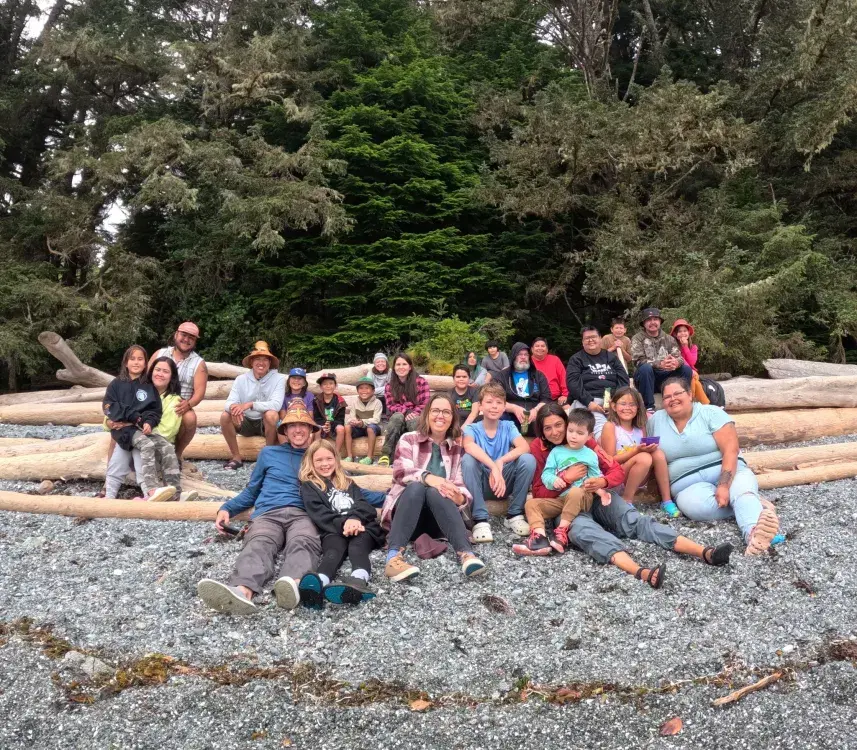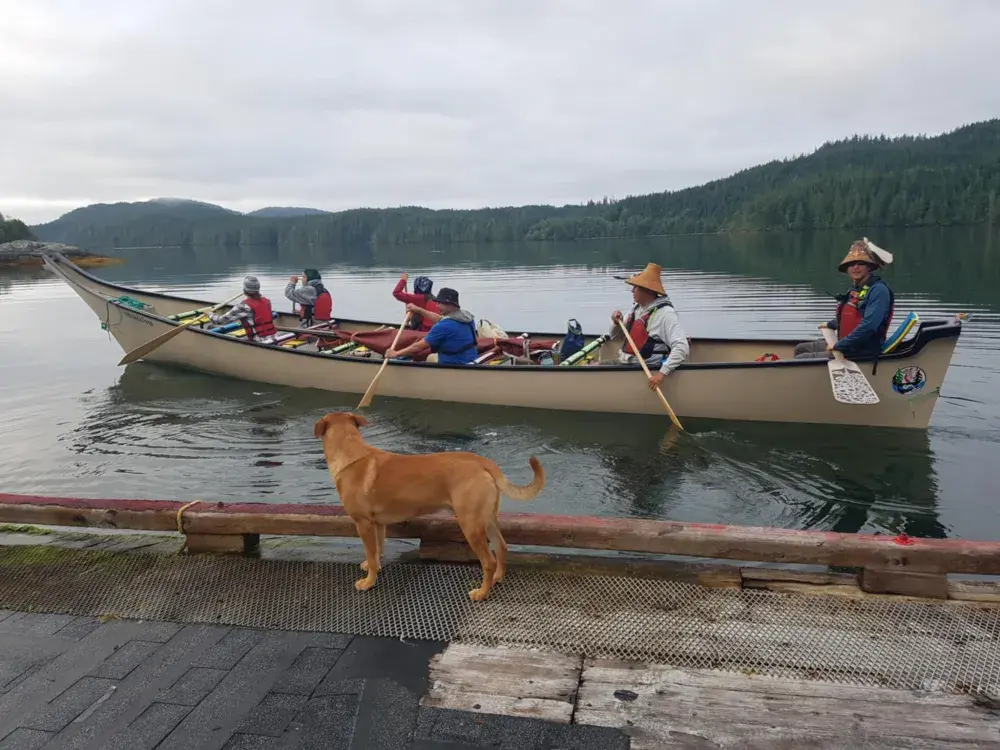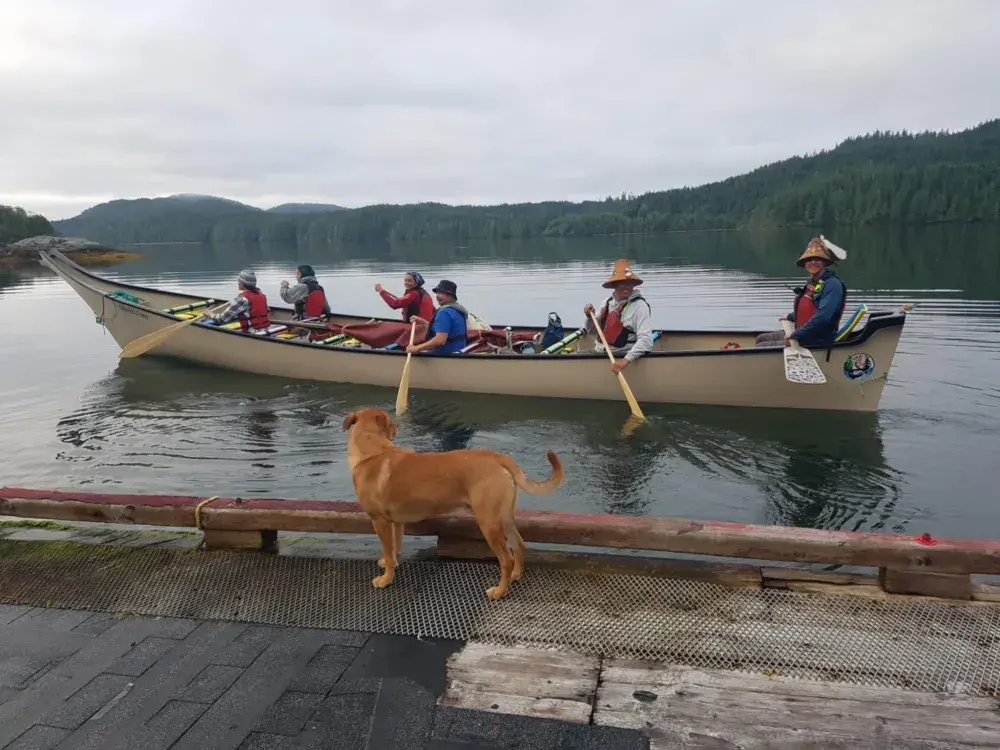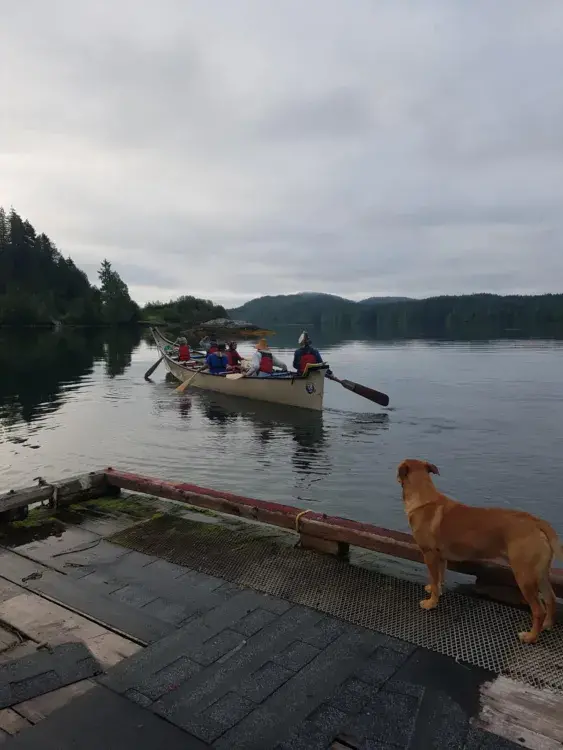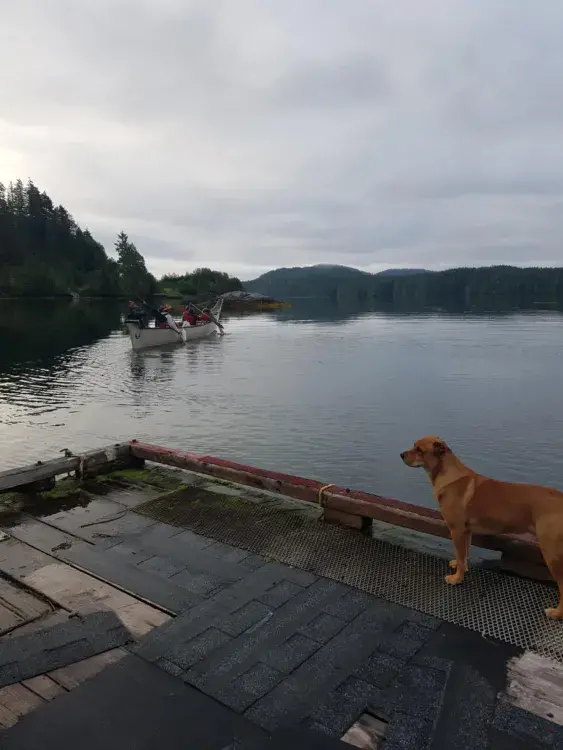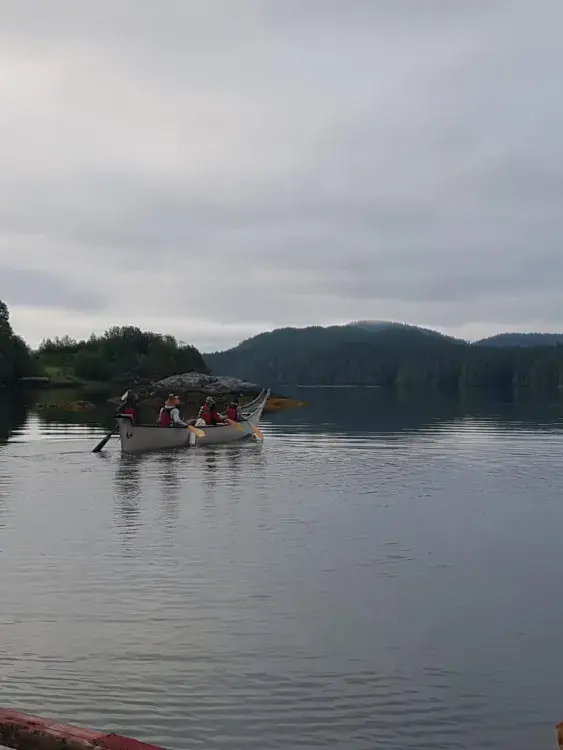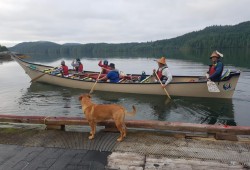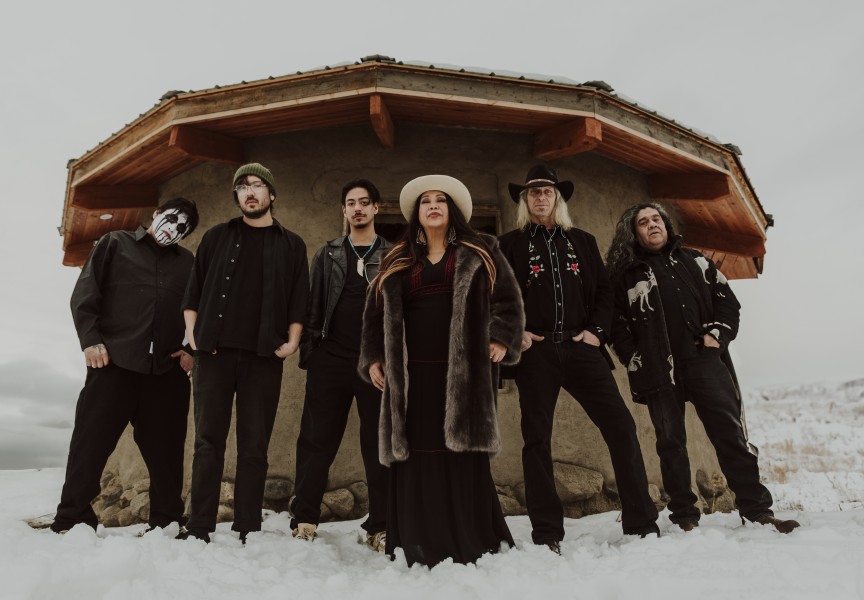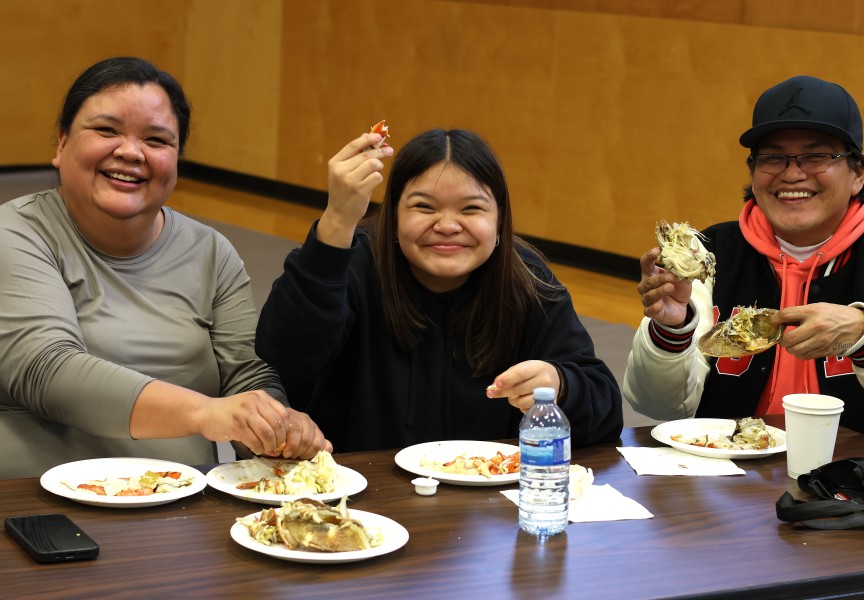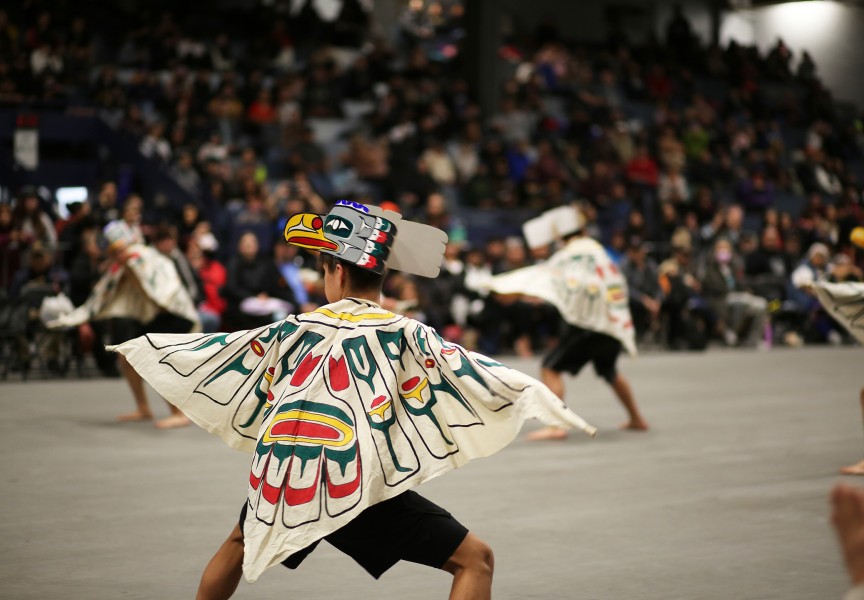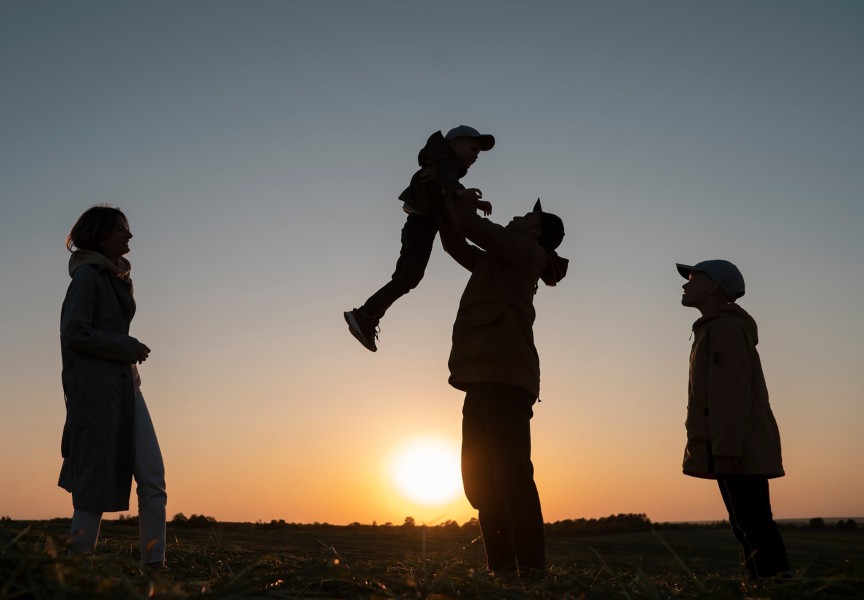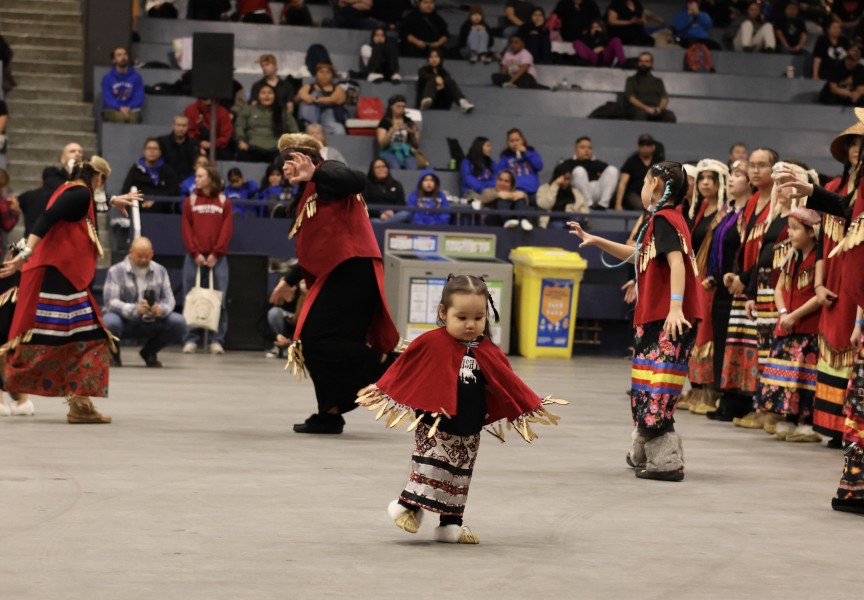The Tseshaht youth dined on traditionally smoked sockeye, drank nettle tea and sang their friendly Paddle Song before landing at the village of Ehthlateese to stay with the Uchucklesaht Tribe. They counted paddle strokes across the Barkley Sound in Nuu-chah-nulth language.
“c̓awaak (one).
ʔaƛa (two).
qacc̓a (three).
muu (four).
suč̓a (five)…”
“We usually count in English, but this year we counted in Nuu-chah-nulth. If you learn words through repetition, you remember it and it sticks,” Tseshaht Canoe Family lead organizer Corey Anderson, 46, told the Ha-Shilth-Sa Newspaper.
“I’m just proud of everybody,” beamed the Tseshaht dad of two. “The reason why we do this is to see our kids discover places they would never see if they were just at home on their PlayStation.”
The late-July mini canoe journey stretched from Port Alberni’s Clutesi Haven Marina to Tseshaht’s creation site c̓išaa (Benson Island), located on the northwestern edge of the Broken Group Islands within the Pacific Rim National Park Reserve. The voyage took about 20 hours of paddling, with a spontaneous stopover on Uchucklesaht territory.
“We were aiming to spend the first night on one of our reserves in Rainy Bay, but we didn’t make it. The wind pushed us back, so we phoned Uchucklesaht,” Anderson shared. “When we got there, they greeted us with open arms.”
Elder Oochah (Phyllis Halvorsen) welcomed the crew at the Village Wharf while Luu luuchka (Tina Halvorsen) prepared the accommodations. Luu luuchka, which translates to flower, gifted them handmade cedar woven roses before they pushed off early the following morning.
“I created gifts that night for them out of cedar as that is very special to me. My grandmother Helen Rush/Robinson taught me those teachings growing up as she was a cedar weaver herself,” said Luu luuchka in an email. “It was very nice meeting everyone and seeing all the young faces with big smiles and look forward to next visit.”
About nine hours after waving goodbye to their new friends in Uchucklesaht, they made camp on c̓išaa. For many on the team of 23, including 13 youth plus the support boat crew, the canoe expedition was an inaugural visit to the island known as the birthplace of the Tseshaht people.
“We wanted to do these mini journeys to the Broken Group Islands because a lot of our people have never been there,” said Anderson, adding that they plan on paddling to Port Angeles, Washington next year for the annual Tribal Canoe Journey. “We wanted to visit our homelands and train more paddlers, so they know what to expect on a long tribal journey.”
“We have a solid crew now. Our goal is to train our people and bring a lot of youth down there to set them up for when we get too old and they can take over,” he continued.
‘She is strong on the water’
Their 32-foot fibreglass canoe called našukc̓uuʔaqs, meaning ‘she is strong on the water’, became a vessel to “escape reality” as Anderson puts it.
“Some people end up crying for no reason; just letting go of all that negative energy they’ve been holding in and just letting go because they are so tired,” said Anderson.
Currently, Tseshaht stores all their gear and the canoe in Anderson’s garage, but the goal is to one day have a special shed for storage, with a sponsor and/or regular grant funding to keep the youth on the water, paddling.
“We’re not going to stop,” Anderson said. “I want to have canoes all over and everyone paddling in a canoe. We are working towards having more than one canoe go down to our homelands, eventually we’ll have two and then three… We can go down as a community in just our canoes.”
Parks Canada does not allow camping on c̓išaa (Benson), but exceptions are made for Tseshaht people and special occurrences like archeological digs.
“We had no problems. Maybe 10 years ago it would have been a different story,” Anderson said.

